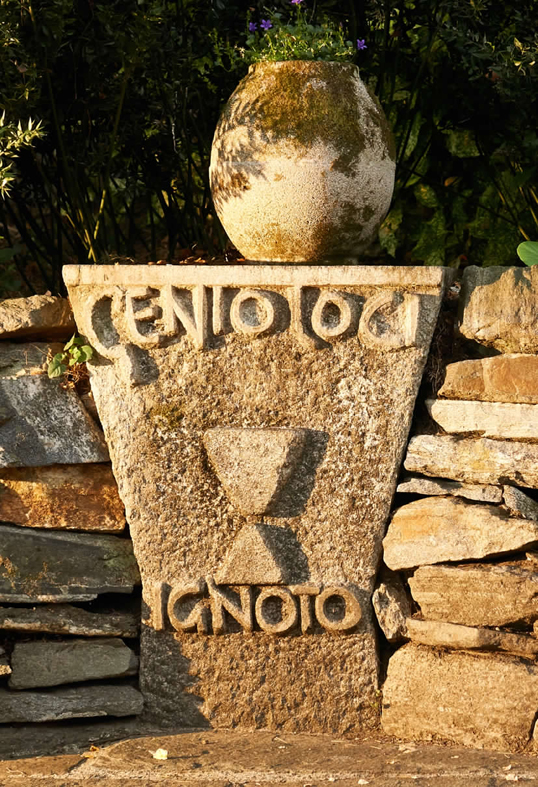
ITA ENG


Memory. Pathways of Individuals and Populations
EJL2024-02

Lecture: Memory. Pathways of Individuals and Populations
Lecturer: Franco Bonsignori (Università di Pisa)
Date: Friday, April 12, 2024, 6:30 p.m.
Place: Monte Verità (Ascona), Auditorium and Zoom: https://us02web.zoom.us/j/89075927343
Cycle: Eranos-Jung Lectures 2024 - The Great Worksites of Contemporaneity. Looks at the Knots of the Present
Language: Italian
Moderator: Fabio Merlini (Eranos Foundation, Ascona / SUFFP, Lugano)
Followed by discussion with the audience and aperitif
The video recording of the conference is viewable on the official YouTube channel of the Eranos Foundation.
Lecture Presentation
The lecture offers a reflection on the theme of memory, with a focus on its collective and political dimensions. It moves from the reference to a hermeneutic-reconstructive doctrine of knowledge, to which the phenomenon of memory is traced. It then turns to the key role there played by the figure of identity. Having clarified how it functions in the individual and the collective, the effects on the process of memorizing are shown. It emerges that individual memory has rational as well as emotional aspects, while collective memory is lucid and institutional, and is true memory only where it proceeds freely and democratically. He closes with a brief mention of the relationship between memory and political processes of reconciliation, which also touches on the strategy of forgiveness.
Lecturer' Bio-bibliography
Franco Bonsignori (1941), a graduate in Law at the University of Pisa, served as full professor of Philosophy of Law and Legal Methodology at the same University. He has also taught courses at the Universities of Siena and Florence. He has carried out various activities abroad, both teaching and lecturing: we indicate, by way of example, some cycles of lectures in the Doctorates in Derecho Constitucional and in Derecho Privado of the Universities of Cadiz-Jeréz and Oviedo (Spain); various lectures given at the Catholic University of Lima, the Palace of Justice in Cuzco (Peru), the Federal Palace of Justice in Ciudad do Mexico (Mexico), the University of Valdivia (Chile), some universities in Buenos Aires and Montevideo, various Brazilian universities (University of Belem, Fortaleza, Recife, Salvador de Bahia), etc. As one of the founders of the Interdisciplinary Center "Sciences for Peace" (CISP) at the University of Pisa, he has been a lecturer in the Degree Courses related to it, of which he has also directed the two-year specialized course. He is currently an adjunct professor of the General Theory of Law course at the University of Pisa. He is the author of numerous publications on topics in political philosophy, philosophy of law, philosophy of peace, and history of thought. Among the most significant ones, we mention here L’ideologia della definizione del diritto e il pensiero di Alf Ross (1973), Concetto di diritto e validità giuridica (1985), Diritto, valori, responsabilità (1997), "Fini cogenti, norme imperanti, valori? Il diritto 'giusto' fra giusnaturalismo, positivismo giuridico e costituzionalismo" (in E. Ripepe, ed., Interrogativi sul diritto “giusto”, 2001), Le regole e il potere. Filosofie del diritto e della politica (2003), "Pace e diritti umani" (in E. Pellecchia and P. Consorti, eds., Diritti, tolleranza, memoria. Una città per la pace, 2005), "Verso un’unificazione del mondo?" (in F. Bonsignori and T. Greco, eds., Un solo mondo, un solo diritto? (2006), "Diritto come regole e come principi" (in VV.AA., La crisis de la ley, 2007), "Il realismo giuridico" (in VV.AA., Prospettive di filosofia del diritto del nostro tempo, 2010), "Regole e principi giuridici nella prospettiva del costituzionalismo contemporaneo" (in A. Ballarini, ed., Costituzione, morale, diritto, 2014), Psicanalisi della pace (2015), “'L’oasita eloquente': una storia antica di diritti (umani?) (in I. Belloni, T. Greco, and L. Milazzo, eds., Pluralismo delle fonti e metamorfosi del diritto soggettivo nella storia della cultura giuridica, Vol. II: La prospettiva filosofica. Teorie dei diritti e questioni di fine vita, 2016) e "Note e norme: strane parentele" (in D. Edigati and M.P. Geri, eds., Iura communa. Scritti in ricordo di Mario Montorzi, 2022). His most recent work is entitled Il sogno di Visnu. Per una tettonica della civiltà (2023).
--
The Foundation wanted to question some leading figures in today's cultural world, asking them to present the projects and issues on which they are working. The idea is to bring into dialogue at a distance qualified gazes on the nodes of our present, to highlight their risks, opportunities, and prospects. Not, of course, to listen to the last word on what is happening today, but rather to enter their laboratories of thought and try to focus on a kind of ongoing geography of the present time: to orient ourselves, to find ourselves, to map out possible virtuous paths-despite the disorientation and uncertainty that characterizes us, in an age that is very rich in technological resources, but very poor in future perspectives. Rather than inviting them to reflect on a guiding theme, as is the Eranos-Jung Lectures usual practice, we wanted to offer the lecturers the chance to present to the audience the issues they are working on, to see how the gaze on an object is constructed, through what sensibility, what concerns, what desire for understanding, and what method. And, of course, what passion. It will be a journey that will allow us to visit some “great worksites of contemporaneity” dedicated to different thematic areas: i.e., the state of health of our democracies; the fate of the “book” object and interiority in the time of endless distraction and social media; the reality of the metaverse, the overcoming of the human, and the resources of mysticism; the sonic perceptive in a society that continually solicits the sense of hearing; the solitude of the artist in the glittering world of the commodification of creativity; the drifts of the divine; and the meaning of making culture. In essence: a journey outside and inside ourselves.